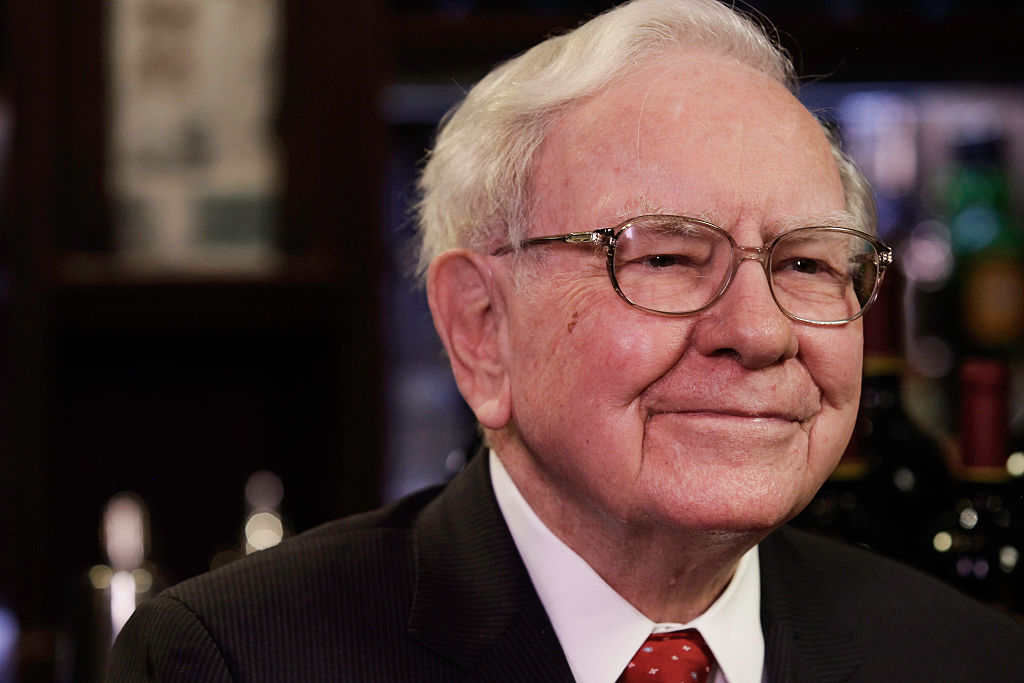5 Stocks to Sell or Avoid Now
In a difficult market like this, weak positions can get even weaker. Wall Street analysts believe these five stocks should be near the front of your sell list.


Profit and prosper with the best of Kiplinger's advice on investing, taxes, retirement, personal finance and much more. Delivered daily. Enter your email in the box and click Sign Me Up.
You are now subscribed
Your newsletter sign-up was successful
Want to add more newsletters?

Delivered daily
Kiplinger Today
Profit and prosper with the best of Kiplinger's advice on investing, taxes, retirement, personal finance and much more delivered daily. Smart money moves start here.

Sent five days a week
Kiplinger A Step Ahead
Get practical help to make better financial decisions in your everyday life, from spending to savings on top deals.

Delivered daily
Kiplinger Closing Bell
Get today's biggest financial and investing headlines delivered to your inbox every day the U.S. stock market is open.

Sent twice a week
Kiplinger Adviser Intel
Financial pros across the country share best practices and fresh tactics to preserve and grow your wealth.

Delivered weekly
Kiplinger Tax Tips
Trim your federal and state tax bills with practical tax-planning and tax-cutting strategies.

Sent twice a week
Kiplinger Retirement Tips
Your twice-a-week guide to planning and enjoying a financially secure and richly rewarding retirement

Sent bimonthly.
Kiplinger Adviser Angle
Insights for advisers, wealth managers and other financial professionals.

Sent twice a week
Kiplinger Investing Weekly
Your twice-a-week roundup of promising stocks, funds, companies and industries you should consider, ones you should avoid, and why.

Sent weekly for six weeks
Kiplinger Invest for Retirement
Your step-by-step six-part series on how to invest for retirement, from devising a successful strategy to exactly which investments to choose.
Sell calls are pretty rare on Wall Street, so when analysts collectively give any name a thumbs down it's probably wise to toss it in the stocks to sell – or at least avoid – pile.
Fortunately, as noted, such stocks are indeed unusual. To get a sense of just how reluctant industry analysts are to issue Sell recommendations, simply take a look at the S&P 500. Only five components of the benchmark index rate a consensus recommendation of Sell, per S&P Global Market Intelligence.
Interestingly, four of these names happen to be members of the S&P 500 Dividend Aristocrats, an index of companies that have increased their dividends annually for at least 25 consecutive years. The Aristocrats are generally considered to be the best dividend stocks for dividend growth, and long-term investors shouldn't dump them automatically just because analysts are negative on them at current levels.
Remember: When an analyst rates a stock at Sell, all that implies is that the equity in question is forecast to underperform the broader market by some margin over the next 12 months or so. Income investors with extended holding periods – we're talking anywhere from five years to decades – needn't worry about such shorter term concerns. The magic of compounding will still redound to truly patient dividend-growth investors.
Here's how we found the five stocks to sell or avoid now. Using data from S&P Global Market Intelligence, we screened the S&P 500 for the stocks with the highest-conviction consensus Sell recommendations by industry analysts.
A note on how the ratings system works: S&P surveys analysts' stock calls and scores them on a five-point scale, where 1.0 equals a Strong Buy and 5.0 is a Strong Sell. Any score higher than 3.5 means that analysts, on average, rate the stock at Sell. The closer a score gets to 5.0, the stronger the consensus Sell recommendation.
After running the screen we were left with the five following names. Although they come from sectors as diverse as consumer staples, financials and utilities, they all have one thing in common: The Street expects them to underperform the broader market over the next year or so.
Market data and analysts' recommendations are as of March 8, courtesy of S&P Global Market Intelligence. Stocks are listed by strength of conviction of analysts' Sell calls, from weakest to strongest.

Clorox
- Market value: $18.7 billion
- Analysts' consensus recommendation: 3.52 (Sell)
Clorox (CLX) stock is off to a strong start in 2023 – up 8.7% vs. 4.3% for the S&P 500 – but analysts don't expect the outperformance to last. That's because the consumer staples stalwart is dealing with both a post-COVID-19 hangover and higher input costs.
"The company had benefited from increased sales during the pandemic as demand for cleansing products spiked," writes Argus Research analyst Taylor Conrad, who rates CLX at Hold. "As benefits from the pandemic have subsided, inflation has put sales and margins under pressure. The company's revenue has fallen from peak pandemic levels, with sequential declines in five of the past eight quarters."
Of the 21 analysts covering this blue chip dividend stock tracked by S&P Global Market Intelligence, one calls it a Strong Buy, one says Buy, nine have it at Hold, six rate it at Sell and four call it a Strong Sell. Their average target price of $141.40 gives Clorox stock implied downside of about 6.5% over the next 12 months or so.

Consolidated Edison
- Market value: $32.6 billion
- Analysts' consensus recommendation: 3.56 (Sell)
Founded in 1823, Consolidated Edison (ED) provides electric, gas or steam services to roughly 3.6 million customers in New York City and Westchester County. ConEd also happens to be one of North America's largest solar power providers.
ED stock tends to lag the broader market over pretty much any time frame you care to chart, but it never really underperforms to a disastrous degree, either. Wall Street has never expected much in the way of outperformance, anyway. Indeed, ED has carried a consensus recommendation of Hold or Sell for more than 20 years.
No, ED won't wow investors with its price potential, but few names are more reliable at raising their dividends. This Dividend Aristocrat has hiked its disbursement annually for 49 years.
Ten analysts rate the stock at Hold, three say Sell and three call it a Strong Sell. Their average price target of $88.50 gives ED implied downside of about 4% in the next year.

Expeditors International of Washington
- Market value: $17.3 billion
- Analysts' consensus recommendation: 3.59 (Sell)
Global macroeconomics aren't being very kind to transportation and logistics services companies these days, and Expeditors International of Washington (EXPD) has been no exception.
"We expect the current environment of weak demand and significantly lower airfreight and ocean rates to persist in 2023," writes UBS analyst Thomas Wadewitz, who rates EXPD at Sell.
Wadewitz has plenty of company on the Street. Of the 17 analysts covering EXPD tracked by S&P Global Market Intelligence, 11 call it a Hold, two say Sell and four rate it at Strong Sell. That works out to a consensus recommendation of Sell, albeit with moderate conviction. Meanwhile, the Street's average price target of $99.87 gives EXPD stock implied downside of about 11% in the next 12 months or so.
Income investors can at least count on EXPD's regular dividend increases. The company, which pays a semiannual dividend, has hiked the payout annually for almost three decades.

Franklin Resources
- Market value: $14.2 billion
- Analysts' consensus recommendation: 3.69 (Sell)
Franklin Resources (BEN), along with its subsidiaries, is best known as Franklin Templeton investments. The global investment firm with $1.5 trillion in assets under management is among the largest in the world.
BEN stock was beating the S&P 500 by about 4 percentage points for the year-to-date through March 8, but the Street doesn't expect the lead to last. Mutual fund providers are under pressure as customers eschew traditional stock pickers in favor of indexed investments. That trend in outflows has much of the Street worried about BEN's prospects.
On the other hand, this Dividend Aristocrat's reliable and generous dividend history should not be overlooked, analysts note.
"While ongoing net asset outflows temper our view, we think the shares are worth holding amid an expected tailwind from an equity market rally and the potential for further industry consolidation," writes CFRA Research analyst Cathy Seifert (Hold).
Seven analysts rate BEN at Hold, while three call it a Sell and three rate it at Strong Sell. Their average price target of $26.92 gives shares implied downside of about 5% in the next year or so.

Principal Financial Group
- Market value: $19.6 billion
- Analysts' consensus recommendation: 3.71 (Sell)
No stock in the S&P 500 gets a lower consensus recommendation from Wall Street than Principal Financial Group (PFG).
Of the 14 analysts covering the investment and retirement management firm, one calls it a Strong Buy, five rate it at Hold, four say Sell and four call it a Strong Sell. Although their average target price of $83.08 does give shares implied upside of about 3% in the next 12 months or so, analysts expect PFG's total return to lag that of the broader market.
If PFG is expected to disappoint this year, that's partly due to the fact that it has so overwhelmingly outperformed in the recent past. Shares returned almost 33% over the past 52 weeks vs. a decline of 2.7% for the S&P 500. The trailing three-year annualized return likewise clobbered the broader market, with PFG up 30% vs. 12.1% for the S&P 500.
PFG faces fundamental hurdles as well, such as lower performance fees and higher expenses, notes Credit Suisse analyst Andrew Kligerman, who rates shares at Underweight (the equivalent of Sell).
Profit and prosper with the best of Kiplinger's advice on investing, taxes, retirement, personal finance and much more. Delivered daily. Enter your email in the box and click Sign Me Up.

Dan Burrows is Kiplinger's senior investing writer, having joined the publication full time in 2016.
A long-time financial journalist, Dan is a veteran of MarketWatch, CBS MoneyWatch, SmartMoney, InvestorPlace, DailyFinance and other tier 1 national publications. He has written for The Wall Street Journal, Bloomberg and Consumer Reports and his stories have appeared in the New York Daily News, the San Jose Mercury News and Investor's Business Daily, among many other outlets. As a senior writer at AOL's DailyFinance, Dan reported market news from the floor of the New York Stock Exchange.
Once upon a time – before his days as a financial reporter and assistant financial editor at legendary fashion trade paper Women's Wear Daily – Dan worked for Spy magazine, scribbled away at Time Inc. and contributed to Maxim magazine back when lad mags were a thing. He's also written for Esquire magazine's Dubious Achievements Awards.
In his current role at Kiplinger, Dan writes about markets and macroeconomics.
Dan holds a bachelor's degree from Oberlin College and a master's degree from Columbia University.
Disclosure: Dan does not trade individual stocks or securities. He is eternally long the U.S equity market, primarily through tax-advantaged accounts.
-
 Ask the Tax Editor: Federal Income Tax Deductions
Ask the Tax Editor: Federal Income Tax DeductionsAsk the Editor In this week's Ask the Editor Q&A, Joy Taylor answers questions on federal income tax deductions
-
 States With No-Fault Car Insurance Laws (and How No-Fault Car Insurance Works)
States With No-Fault Car Insurance Laws (and How No-Fault Car Insurance Works)A breakdown of the confusing rules around no-fault car insurance in every state where it exists.
-
 Why Picking a Retirement Age Feels Impossible (and How to Finally Decide)
Why Picking a Retirement Age Feels Impossible (and How to Finally Decide)Struggling with picking a date? Experts explain how to get out of your head and retire on your own terms.
-
 If You'd Put $1,000 Into AMD Stock 20 Years Ago, Here's What You'd Have Today
If You'd Put $1,000 Into AMD Stock 20 Years Ago, Here's What You'd Have TodayAdvanced Micro Devices stock is soaring thanks to AI, but as a buy-and-hold bet, it's been a market laggard.
-
 If You'd Put $1,000 Into UPS Stock 20 Years Ago, Here's What You'd Have Today
If You'd Put $1,000 Into UPS Stock 20 Years Ago, Here's What You'd Have TodayUnited Parcel Service stock has been a massive long-term laggard.
-
 If You'd Put $1,000 Into Lowe's Stock 20 Years Ago, Here's What You'd Have Today
If You'd Put $1,000 Into Lowe's Stock 20 Years Ago, Here's What You'd Have TodayLowe's stock has delivered disappointing returns recently, but it's been a great holding for truly patient investors.
-
 If You'd Put $1,000 Into 3M Stock 20 Years Ago, Here's What You'd Have Today
If You'd Put $1,000 Into 3M Stock 20 Years Ago, Here's What You'd Have TodayMMM stock has been a pit of despair for truly long-term shareholders.
-
 If You'd Put $1,000 Into Coca-Cola Stock 20 Years Ago, Here's What You'd Have Today
If You'd Put $1,000 Into Coca-Cola Stock 20 Years Ago, Here's What You'd Have TodayEven with its reliable dividend growth and generous stock buybacks, Coca-Cola has underperformed the broad market in the long term.
-
 If You Put $1,000 into Qualcomm Stock 20 Years Ago, Here's What You Would Have Today
If You Put $1,000 into Qualcomm Stock 20 Years Ago, Here's What You Would Have TodayQualcomm stock has been a big disappointment for truly long-term investors.
-
 Why I Trust These Trillion-Dollar Stocks
Why I Trust These Trillion-Dollar StocksThe top-heavy nature of the S&P 500 should make any investor nervous, but there's still plenty to like in these trillion-dollar stocks.
-
 What Made Warren Buffett's Career So Remarkable
What Made Warren Buffett's Career So RemarkableWhat made the ‘Oracle of Omaha’ great, and who could be next as king or queen of investing?
